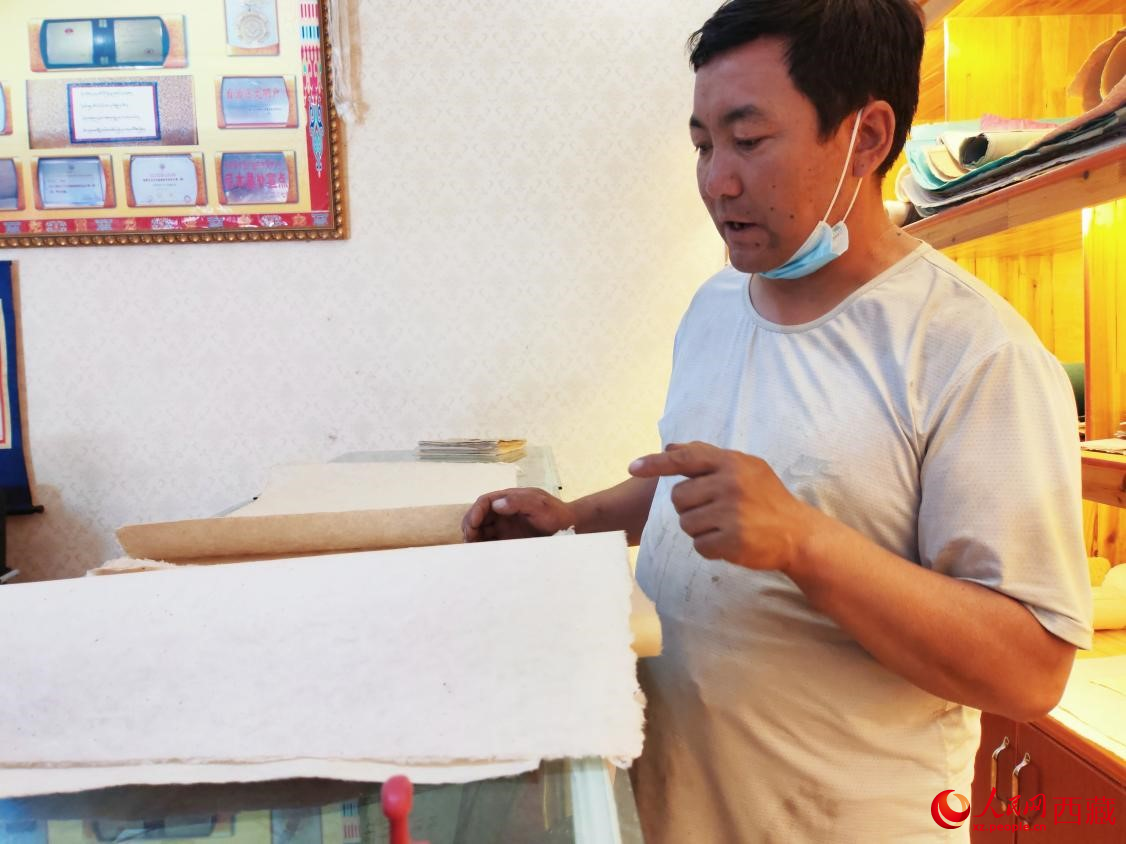Nyemo county in Lhasa city, capital of southwest China's Xizang Autonomous Region, is known for its three intangible heritages handicrafts: Tibetan incense-making, Tibetan paper-making and Pusum hand-engraving. In recent years, the three traditional handicrafts are helping local villagers with employment and boosting income.

Phuchung, an inheritor of Tibetan paper-making, prepares Tibetan paper for sale. (People's Daily Online/Li Haixia)
“We have high-quality products, and our goal is to broaden our market presence and discover efficient methods to sell them,” said Qungda, director of the bureau of commerce in Nyemo county.
“To support the comprehensive revitalization of rural areas, it’s vital to consistently improve the development of rural e-commerce service systems,” Qungda stressed.

Photo shows a logistics site in Nyemo county, Lhasa city, capital of southwest China's Xizang Autonomous Region. (People's Daily Online/Li Haixia)
Nyemo county has set up and operated seven e-commerce service stations at the township level, along with 17 e-commerce service sites at the administrative village level. The provision of e-commerce services and logistics distribution now covers all townships, reaching a 100 percent coverage rate, while administrative villages enjoy a coverage rate of 50 percent.
In Tonta village, the birthplace of Tibetan incense in Nyemo county, veteran artisan Tenzin has witnessed the remarkable growth of the local Tibetan incense market.
“Before, we had to go out and personally promote and sell our incense, which was quite a challenge. But now, we can work from the comfort of our own homes and earn a daily wage of 150 yuan (about $20.68). We can sell as much as we can produce,” said Tenzin.
Tashi Dondrup, who oversees the e-commerce service station in Thonpa township, said that more than 80 percent of Tibetan incense is sold on e-commerce platforms, generating an annual revenue of around 2.8 million yuan.

Photo shows a product exhibition center in Nyemo county, Lhasa city, capital of southwest China's Xizang Autonomous Region. (People's Daily Online/Li Haixia)
